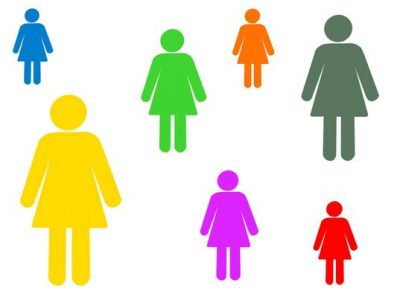Despite being a Crock-Pot of cultures in a decidedly blue state, the city of Boston continues to be racist and segregated — and has a history of it too.
Less than half of the city’s residents are white and roughly 25 percent are Black Americans. If you’re looking for diversity points, it’s a marked improvement from 50 years ago, when white Bostonians made up 80 percent of the city.
But welcoming more diverse residents does no good when the leaders and policies haven’t made living in Boston more equitable. Take, for example: the wealth gap, police brutality, housing segregation, gentrification, education inequalities, unemployment rates or systemic racism in the justice system.
Just six years ago, the Federal Reserve Bank of Boston’s “The Color of Wealth in Boston” report showed the median net worth of white households was $247,500 and the median net worth of Black households was an obscene $8. Other households of colors from the report suffer a similar, drastic gap.
The growing diversity also does little to reflect its public school demographics. A Boston Indicators study from 2020 found we are regressing and resegregating: compared to 2000 or even 1980, more students of color attend intensely segregated schools and more than half of the public schools are segregated.

These problems are not going away on their own. And they evidently haven’t been solved by the parade of white men who have claimed the position of mayor for almost a century.
While current Mayor Marty Walsh has made a pledge to end racism in Boston, and the current City Council is the most diverse it’s ever been, we may see more progress if a woman of color is elected to fill Walsh’s seat when he leaves to serve as Secretary of Labor.
Three declared mayoral candidates are women of color, two of whom are daughters of immigrants. In the meantime, City Council President Kim Janey — a Black woman— will serve as the interim mayor. This representation has been long awaited and much needed, especially to properly address constituent concerns and inspire those with similar backgrounds.
“We need leadership not only that is bold and courageous, but leadership that understands those inequities, and has lived them,” City Councilor and mayoral candidate Andrea Campbell said.
Now, we have these candidates and we may soon have an interim mayor and succeeding mayor who have unfortunately lived with these inequities.
While it’s great to see this progress, we must be careful not to treat minority candidates or elected officials in Boston as an anomaly. It’s normal for women and people of color from Boston communities to fight for change. It’s normal for them to be candidates, and they should not be framed as “the first” and reduced to one aspect of their identity.
The candidates have more to offer than their race or gender — some of their policies also appear to be more progressive than past mayors. City Councilor and mayoral candidate Michelle Wu, for example, is prioritizing community issues such as gentrification, carbon neutrality and transportation.
This upcoming race will certainly mark further progress for Boston, and it comes as the result of a happy chain of events. It would have been near impossible to upseat Walsh had he not been nominated as Secretary of Labor — an incumbent candidate has not lost the mayoral race since 1949. Former Mayor Thomas Menino, for instance, held his position for 20 years.
Before, there was a fear of splitting the vote — it would essentially be throwing away your vote if you chose to side with a new candidate who has little chance of overthrowing the incumbent. This system effectively stopped minority candidates from getting very far in the races.
Walsh leaving and not running for re-election would give us a blank slate — there’s no incumbent to beat, so there’s no candidate with an unfair advantage. It allows constituents more freedom to vote for who they actually want, and the race will more accurately reflect the city’s changing demographics.
Boston is also not the only major city that is leaning more toward the left in the next few years. In New York City, Andrew Yang, an Asian American candidate, is the frontrunner of the 2021 mayoral race. Los Angeles is also set to hold a mayoral election in 2022.
In big cities such as these, mayors are almost as powerful as the state governors and senators. We hear about their policies in the news just as often. As we lean toward more and more progressive lawmakers in local elections, it’s important to remember the power these races hold in the United States.
Voting in your local elections is a way to bring about real change.




